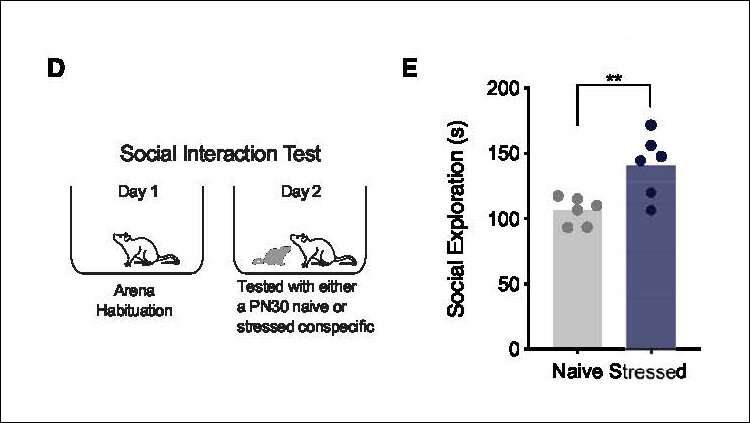Why rats prefer company of the young and stressed

Researchers have identified a neural pathway implicated in social interaction between adult and juvenile animals, according to new research in rats published in JNeurosci.
Adult rats have been shown to prefer the company of stressed-out juveniles. This preference could be mediated by connections between the insular cortex, an area that integrates emotional and sensory information, and the nucleus accumbens, an area involved in determining reward.
Rogers-Carter et al. manipulated this pathway in adult rats to see how it affected their interactions with stressed and relaxed rats of various ages.
When the insular cortex was inhibited, the rats lost their preference for stressed juvenile rats, but their avoidance of the stressed adults persisted.
The researchers believe that young, stressed animals trigger parental instincts, whereas a stressed adult might be a sign of danger.
This parallels the increased empathy humans have towards children over their peers.
More information: Morgan M. Rogers-Carter et al, Insular cortex projections to nucleus accumbens core mediate social approach to stressed juvenile rats, The Journal of Neuroscience (2019). DOI: 10.1523/JNEUROSCI.0316-19.2019




















